News release

September 2020

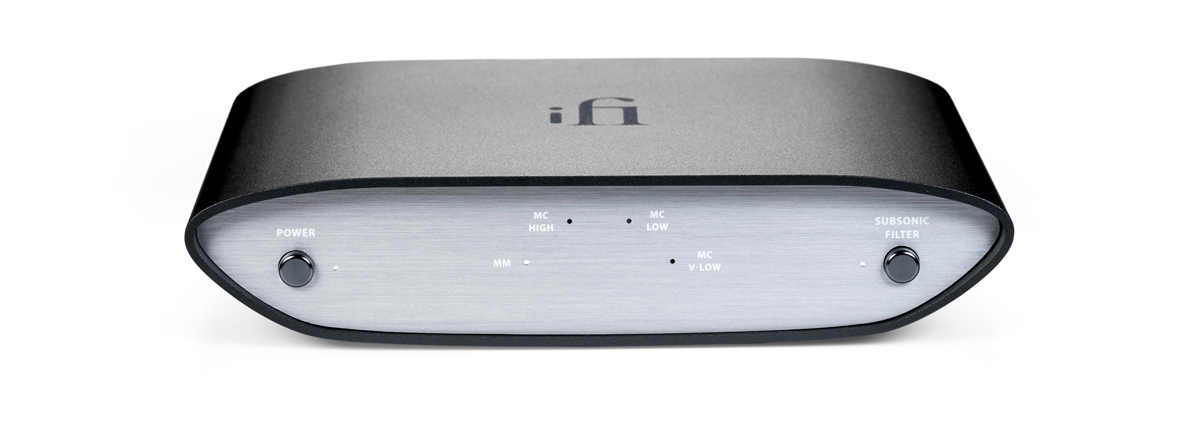

Above iFi ZEN Phono entry-level phono stage
ZEN gets groovy with iFi’s new phono stage
Adjustable gain? Tick. Subsonic filter? Tick. Class-leading, ultra-low-noise performance? Tick. The iFi ZEN Phono is an entry-level phono stage to surpass all others
Southport, England – iFi continues to expand its multi-ward-winning ZEN Series of affordable, desktop-sized audio devices with the ZEN Phono – a phono stage (or phono preamplifier, if you prefer) with a peerless performance at just $149. U.S.
iFi’s pedigree in phono stage design is considerable. The company’s recently launched flagship model, the iPhono3 Black Label, delivers class-leading, ultra-low-noise performance at £999, while the PH-77 from iFi’s sister-company AMR is a $15,000 reference-class phono preamplifier. The ZEN Phono is the first sub-$200 phono stage iFi has made and in terms of sound-per-pound performance it is a truly remarkable device.
For anyone diving headlong into the vinyl revival, the ZEN Phono is the ideal companion for their chosen turntable. It delivers a specification and performance unparalleled at the price, able to match perfectly will all manner of phono cartridges, whether moving magnet or moving coil.
Take the stage
Every turntable needs a phono stage to amplify the low-level output from a phono cartridge to ‘line level’ and apply RIAA equalisation. Some integrated amps and preamps have phono stages built in, but these vary in quality and are rarely as good as a well-designed offboard phono stage placed in the signal chain between the turntable and a line-level input on the amp.
Designing a truly high-performance phono stage is not an easy thing to do. For one thing, it is difficult to amplify the delicate output from a phono cartridge without also amplifying noise. In addition, the wide variation in output from different cartridges means that many phono stages only work optimally with certain cartridge types. These issues are exacerbated at the entry-level end of the phono stage market, where basic circuit design using common off-the-shelf components often leads to a performance that is adequate at best – okay for entry level, but easily outclassed by spending more.
The ZEN Phono has been designed to push the boundaries of what can be achieved in an entry-level phono stage. Its circuit design is like nothing else at the price, with a range of precisely engineered settings that ensure genuine versatility. Whatever the turntable, whatever the cartridge, the ZEN Phono always delivers a class-leading performance.
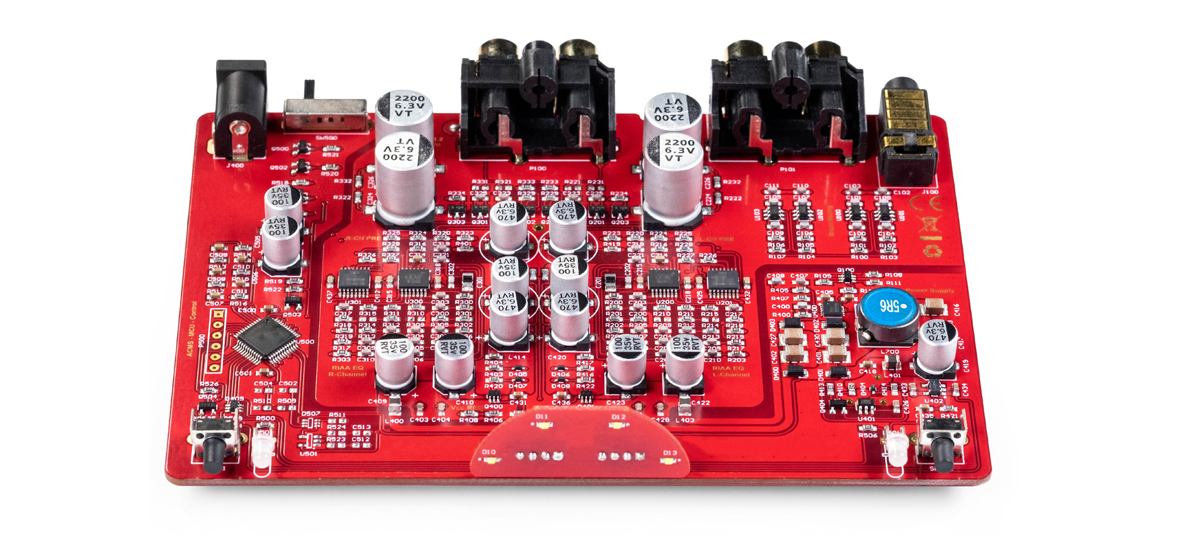
A question of balance
The ZEN Phono’s circuitry is of balanced, symmetrical dual-mono design – a topology usually reserved for high-end audio products owing to complexity and cost. Balanced circuit design has the ability the reduce noise and crosstalk, thus increasing sonic clarity, and has long been championed by renowned high-end audio electronics engineer John Curl – a man whose analogue amp designs, including several landmark phono stages, have been lauded since the 1970s.
Curl, now a technical consultant for iFi, has worked with iFi’s in-house technical team, headed by Thorsten Loesch, to produce a circuit design of exceptional quality for such an affordable phono stage. A fully balanced, ultra-low-noise design of this kind is unprecedented at such a low price point.
Sum of the parts
The ZEN Phono’s balanced circuitry contains surface-mounted components of unusual quality in an entry-level design. For example, the capacitors used include TDK C0G and Murata multilayer ceramic types, as well as Panasonic ECPU polyphenylene sulphide film devices – none of these are cheap, but their class-leading ESL (Equivalent Series Resistance) and individual qualities such as high stability and low distortion pay great dividends in terms of sound quality and the accuracy of RIAA equalisation.
In common with many iFi audio products, the ZEN Phono incorporates a custom OV Series op-amp – in this case, the OVA2637. This also contributes greatly to the price-busting audio performance, thanks to ultra-low distortion (0.0001%).
Clean power
The best phono stages on the market create their own power supply off the mains, similar to a mains regenerator, in order to amplify the audio signal from the cartridge without adding noise. The ZEN Phono achieves this aim, but not in a conventional way; it creates a power supply with an oscillation frequency of 1.2MHz, which is 20,000 times that of mains electricity. In this circuit, a filtering capacitor with a 10uF rating is equivalent to 200,000uF at lower, audible frequencies – exceptional filtering power. The power supply circuitry is located on its own ‘island’ on the circuit board to ensure there is no contamination of the audio signal – just super-clean +/-12V DC.
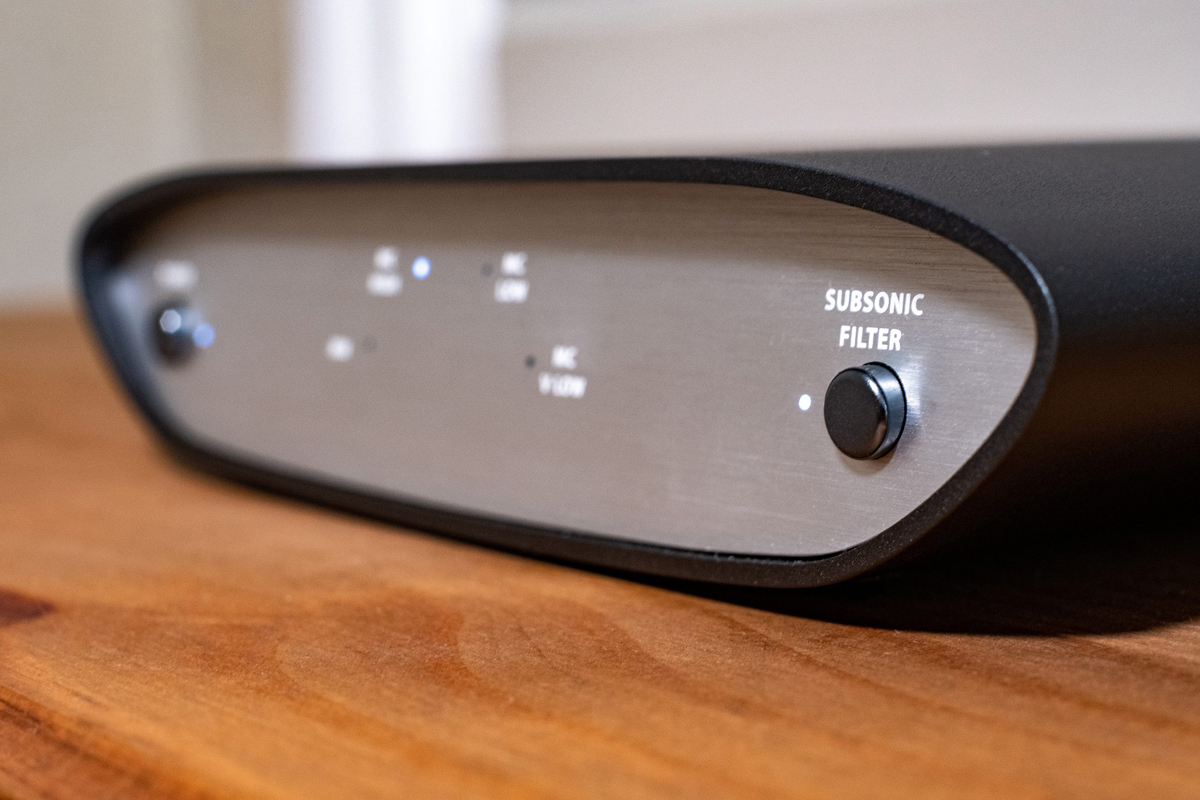
High-end features, entry-level price
Phono cartridges vary greatly in their technical characteristics, but few sub-£200 phono stages handle moving coil (MC) cartridges in addition to moving magnet (MM) types, let alone offer further gain adjustment to make the most of whichever MC cartridge the user chooses to employ.
The ZEN Phono is the exception, delivering a range of gain settings from 36dB to 72dB – impressive even in a much more expensive phono stage. There are four gain settings in total: 36dB (MM), 48dB (high-output MC), 60dB (low-output MC) and 72dB (very-low-output MC). This enables the ZEN Phono to take even the more exotic MC cartridge types in its stride.
Another rarity at this price level is a subsonic filter, engaged via a front-panel button to tackle the large subsonic signal output caused by warped records. A feature of all iFi phono stages, this proprietary circuit ‘intelligently’ filters out the unwanted subsonic output without affecting any deep bass on the recording – an undesirable side effect of some warp filters.
This is how it works: vinyl cutting lathes incorporate a so-called ‘elliptical filter’, which means that low-level bass on an LP is invariably mono and creates only horizontal movement of the stylus. Therefore, any low-frequency vertical movement of the stylus as it tracks the LP can only be the result of record warp. iFi’s subsonic filter removes the effect of record warp from the vertical plane, doing its job efficiently without the common drawbacks of attenuating any low bass or adding group delay.
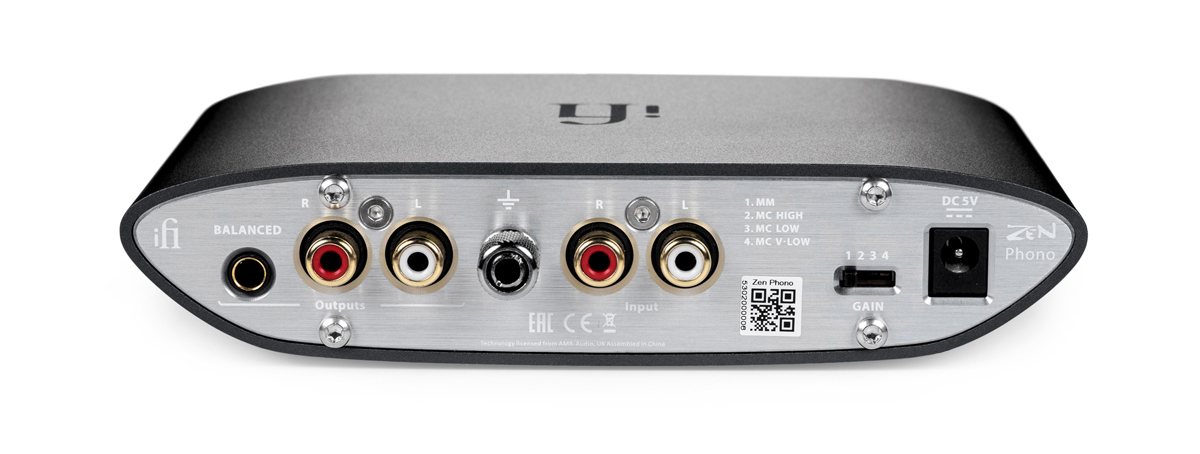
Ins and outs
As well as the usual stereo RCA inputs and outputs, gold-plated for optimal signal integrity, the ZEN Phono’s rear sports another phono stage rarity – a 4.4mm Pentaconn balanced output. This can be used to connect to an amp or active speakers equipped with a balanced input – either a Pentaconn 4.4mm input, such as the one found on the ZEN CAN analogue headphone amp, or XLR inputs via an adapter. This enables a fully balanced connection that makes the most of the ZEN Phono’s balanced circuitry – no other phono stage at this price level offers a balanced output option.
A grounding terminal is also provided; attach a turntable’s grounding wire to this to avoid ground loop issues that can cause an audible hum. Even the way the ZEN Phono switches between settings has been engineered to ensure sonic transparency, handled by a microcontroller that only ‘wakes up’ when a setting is changed to avoid any sonically deleterious electronic noise.
Find your ZEN
The ZEN Phono is the fourth product to
join iFi’s ZEN Series – a range with a mission to make high-performance
audio more accessible than ever. Just like the ZEN DAC, ZEN Blue and ZEN CAN,
it delivers a level of specification and performance never before seen – or
heard – at its price point. The iFi ZEN Phono is available from selected
retailers from 4 September, priced at $149.
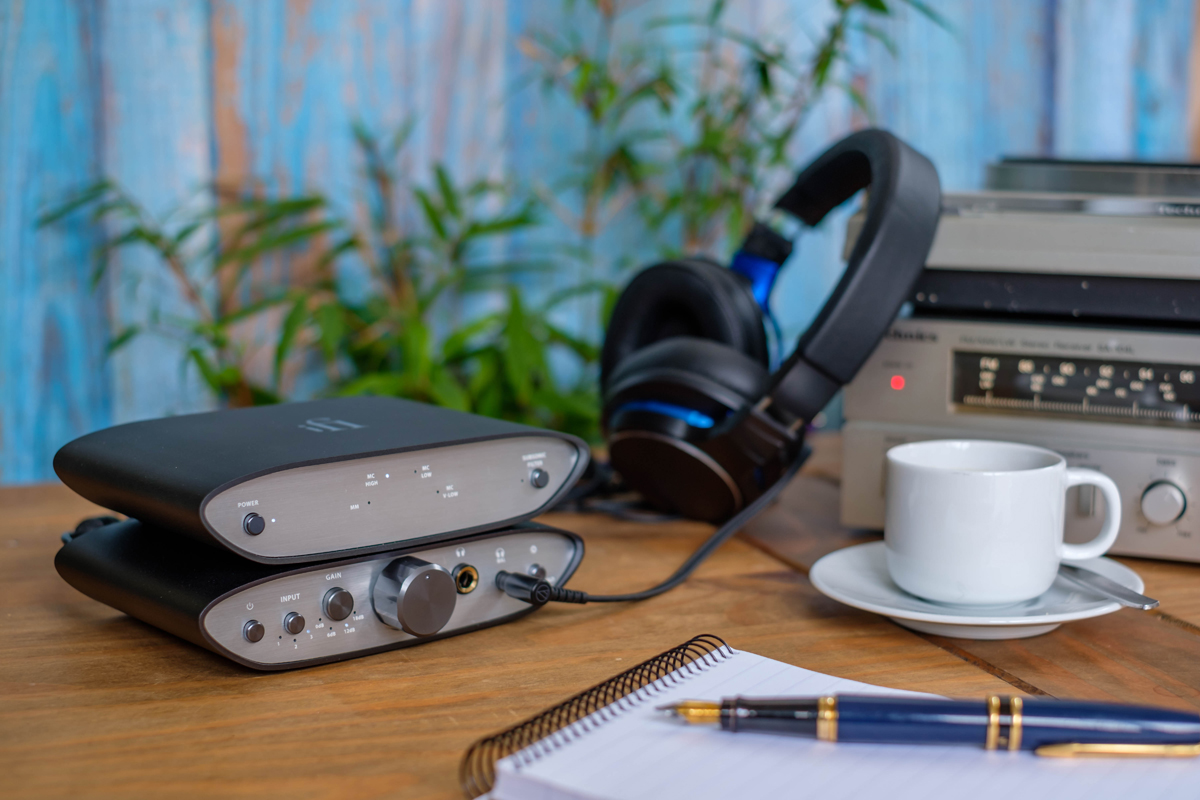

iFi is the sister-brand of Abbingdon Music Research (AMR) and is headquartered in Southport, UK. The two brands respectively design and manufacture portable, desktop and lifestyle audio products and high-end hi-fi components. Combined in-house hardware and software development teams and a ‘music first’ approach enable iFi and AMR to create advanced audio products that deliver new levels of design, functionality and performance at their respective price points. Since iFi’s formation in 2012, its products have earned many awards around the world, helping it to become one of the fastest-growing brands in its field.

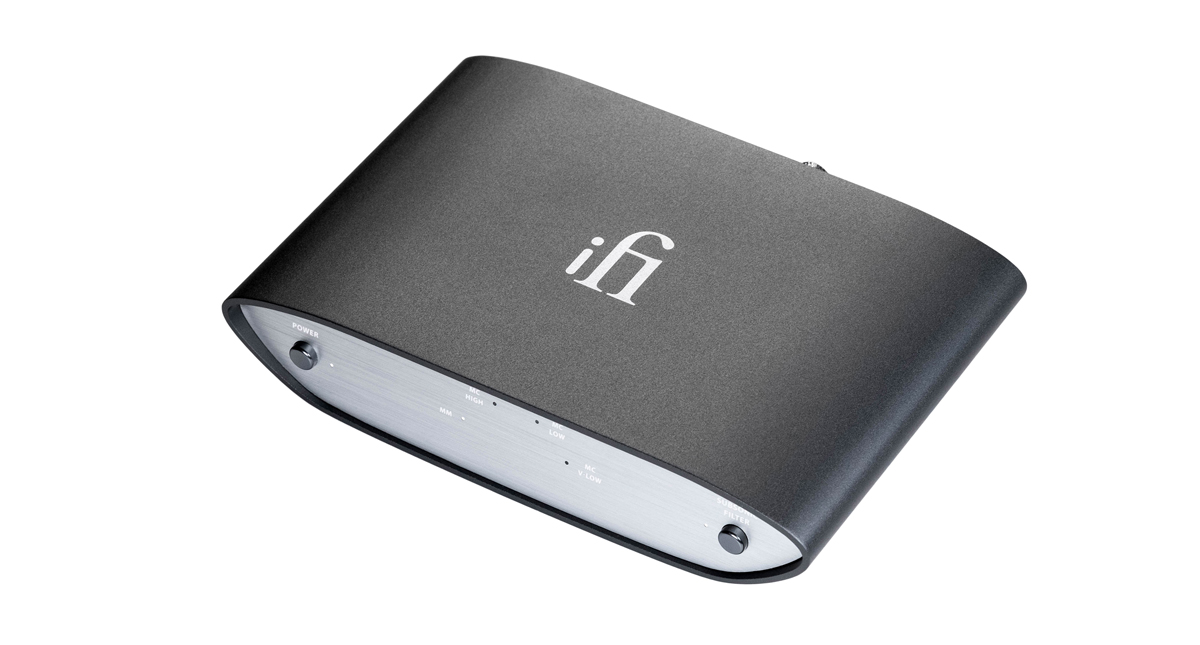






Leave a Reply
Want to join discussion?
Feel free to contribute!